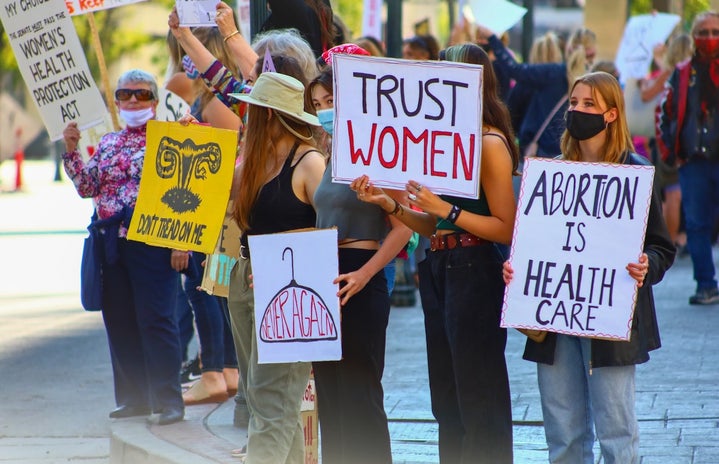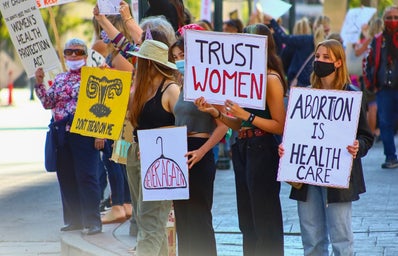On Monday, April 1, the Florida Supreme Court ruled four to three that greater abortion access can be put up on the ballot on Nov. 5, giving Florida voters the chance to enshrine abortion rights in the state’s constitution. Amendment 4 requires a 60 percent majority for approval, reading, “No law shall prohibit, penalize, delay, or restrict abortion before viability or when necessary to protect the patient’s health, as determined by the patient’s healthcare provider.” This amendment would protect abortion up to around 24 weeks of pregnancy and include exceptions for when a doctor deems an abortion necessary to protect the health of the pregnant person.
This victory is being celebrated by reproductive rights activists like Floridians Protecting Freedom, the umbrella organization largely responsible for gathering over 1 million signatures to put abortion on the ballot — far surpassing the 891,523 required. The Florida Supreme Court is being commended by Florida politicians such as Rep. Jared Moskowitz (D) as well.
Shortly before the petition to put Amendment 4 on the ballot got the required signatures, Florida Attorney General Ashley Moody challenged the amendment, asking the Florida Supreme Court to review the wording of the proposed constitutional amendment. Moody wrote in her statement to the court that her opposition to the amendment “has nothing to do with my personal views on abortion. Instead, as I have done throughout my two terms, I have objected to initiatives when the language of the summary will mislead voters,” speaking on the ambiguity of the term “viability.”
On April 1, the Florida Supreme Court shot down her opposition, approving the wording of the amendment and allowing it to move forward onto the ballot in November.
However, on the same day, the Florida Supreme Court also ruled in a separate decision that the state’s constitution does not protect abortion rights, allowing the six-week abortion ban, Ron DeSantis’ SB 300, to go into effect May 1. Also known as the Heartbeat Protection Act, SB 300 prohibits abortions once the fetus has a detectable heartbeat, which is around six weeks after conception. This act includes exceptions for rape, incest, fatal fetal anomalies, and medical emergencies.
While the Florida Supreme Court’s ruling regards the constitutionality of Florida’s previous 15-week abortion ban, the six-week abortion ban would only take effect if the 15-week ban was approved — which it now has been.
Florida Senate Democratic Leader Lauren Book stated on X (formerly known as Twitter), “This is one issue where Democrats, Republicans, and Independents agree: our private medical decisions are none of the government’s business. Our freedom is on the line, and the situation has never been more urgent … It’s up to us.”
Almost all states in the Deep South have restricted or completely banned abortion access, leaving Florida to be a haven for many attempting to get an abortion, with almost 10,000 out-of-state patients coming to Florida to receive abortions in 2023.
If Amendment 4 passes on Nov. 5, it will undo the current abortion bans in the state. However, from May 1 until the amendment is passed, abortions in Florida will be cut off at six weeks, which is before many even know they are pregnant.
Similar states that have had amendments to protect abortion access on the ballot, like Ohio, or put up pro-choice Democratic candidates, like Michigan and Wisconsin, have seen much success in protecting abortion access — even motivating voters to go to the polls. Floridians will have their chance to go to the polls on Nov. 5 to voice their opinions on the matter.
Want to see more HCFSU? Be sure to like us on Facebook and follow us on Instagram, Twitter, TikTok, and Pinterest!


